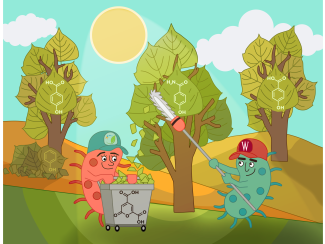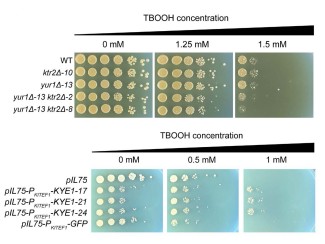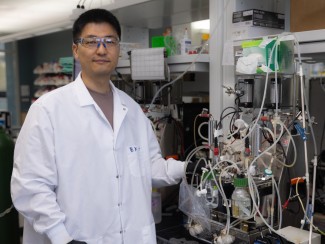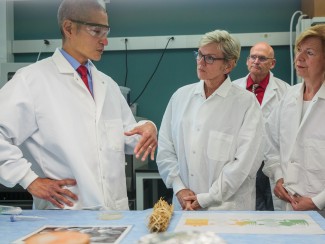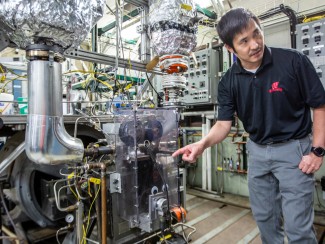Madison — While scientists in Milwaukee research the best chemistries for next-generation car batteries, another partnership between Johnson Controls and the University of Wisconsin-Madison is looking at how next-generation batteries fit in the bigger energy picture.
Company officials joined engineers and students at UW-Madison Monday to unveil an Advanced Systems Test Lab inside the Wisconsin Energy Institute building that opened last year on campus.
The company helped fund new equipment in a high-bay lab that also received financial support from the Mid-West Energy Research Consortium, based in Milwaukee.
The focus of the collaboration is to analyze lithium ion batteries and their life cycle as well as how they interact inside vehicles but as part of larger energy systems.
The university is researching vehicle-to-grid energy storage systems that would help use the energy stored in vehicle batteries to help power the electric grid as a whole, said professor Tom Jahns, an engineering professor at UW-Madison whose work focuses on power electronics.
“At the end of the day when there are enough electric vehicles out there, we’ll be able to access that stored energy and use it as part of the electric grid,” Jahns said.
Creation of the lab “represents a significant milestone in our pursuit of integrated clean energy systems and cutting-edge storage technology at the university,” said Mike Corradini, director of the Wisconsin Energy Institute. The Madison lab is different from and complements the labs Johnson Controls has helped fund with other research partners including the University of Wisconsin-Milwaukee.
UW-Milwaukee’s engineering college is home to research collaborations with faculty and company engineers looking at battery cell technologies, and the components of batteries themselves.
The lab in Madison, meanwhile, is focused on analysis of batteries for use in not only vehicles but also storage for the power grid and other applications.

